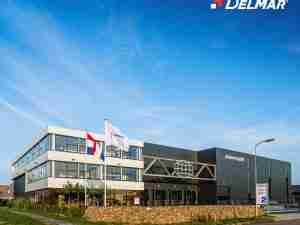Olé Brasil: PTV Group to target international expansion
posted by AJOT | Oct 15 2015 at 09:25 AM | Logistics
PTV opens a branch in Brazil
Karlsruhe/Sao Paulo, 15 October 2015. The PTV Group transport experts are again expanding their international business. The company, with headquarters in the German city of Karlsruhe, today opened a new branch in Sao Paulo, Brazil, to improve the usage of infrastructure in the agile South American market through a local office. The Group now has 14 branches and subsidiaries across five continents, and some 600 employees, generating a turnover of €79 million from software for optimising traffic and transportation logistics.
By opening the new branch in Brazil, the PTV Group, which has operations worldwide, intends to further strengthen its position in the American market. In addition to its involvement in Mexico City, Portland (Oregon) and Arlington (Washington), the company is bolstering its local expertise through the new office in Sao Paulo. Maria Ines Garcia Lippe, Regional Sales Director of PTV Brazil, is now responsible for setting up the new office: "Our customers will benefit from the new office in many ways. We speak the same language, work in the same time zone, understand the national culture and can provide the transport experts from Germany with local trainers, partners and services."
Brazil: The land of boundless opportunity
At present, Brazil is working on a number of infrastructure projects. The public authorities have announced a number of mobility projects, the current aims of which are not only the expansion of the public transport network, but also the sustainable design of private transport and commercial transport in key metropolitan areas and across the country.
The PTV Group plans and optimises everything that moves people and goods worldwide. With this project, it intends to support private road operators, which are increasingly being commissioned by the authorities to do planning work in the region. It also helps with transport modelling and simulation for public transport and with urban logistics.
Miller Crockart, Vice-President of Sales Traffic Software at PTV, says: "As one of the BRIC countries, Brazil has undergone major development and is currently experiencing a great deal of pressure on its road network and public transport. These issues can only be handled sustainably by using intelligent software solutions. At PTV, we therefore focus investment on cooperation with local universities. We look forward to drawing on our expertise, which has the potential of creating excellent infrastructure, to support well-educated young people as disseminators of knowledge.
Current themes and projects
PTV has observed a high demand for intermodal concepts, i.e. combining public and private transportation. Bicycles, including bike sharing offers, are particularly in fashion. In 2015, Sao Paulo added a new component to its transport network with 300 kilometres of express bike paths marked in red along its main network. There are plans to expand the bike paths up to 400 kilometres, with a further 25.5 million dollars (80 million reals) of investment (Source: http://bentavener.com/2015/06/28/avenida-paulista-cycle-lane-inaugurated-in-sao-paulo/). How this in itself will affect transport usage and the traffic flow can be visually simulated and analysed in advance using the PTV transport planning software.
A planning scenario which is currently popular is also to combine transport and logistics. Regional and national logistics transportation models are increasingly in demand and are created on the basis of German technology.
PTV booming
PTV was founded in 1979 in the technological hub of Karlsruhe and has since gone international. The performance of the traffic and transport logistics software is unique worldwide and PTV was one of 100 companies to receive the "Best of German Mittelstand" Award this summer from the Deutsche Standards publishing house. Having set up its own branches in Dubai, Tokyo, Mexico and the UK, the company is expanding its market position in South America with its new office in Brazil. Further sales offices in Russia and South Africa are already in the pipeline.






